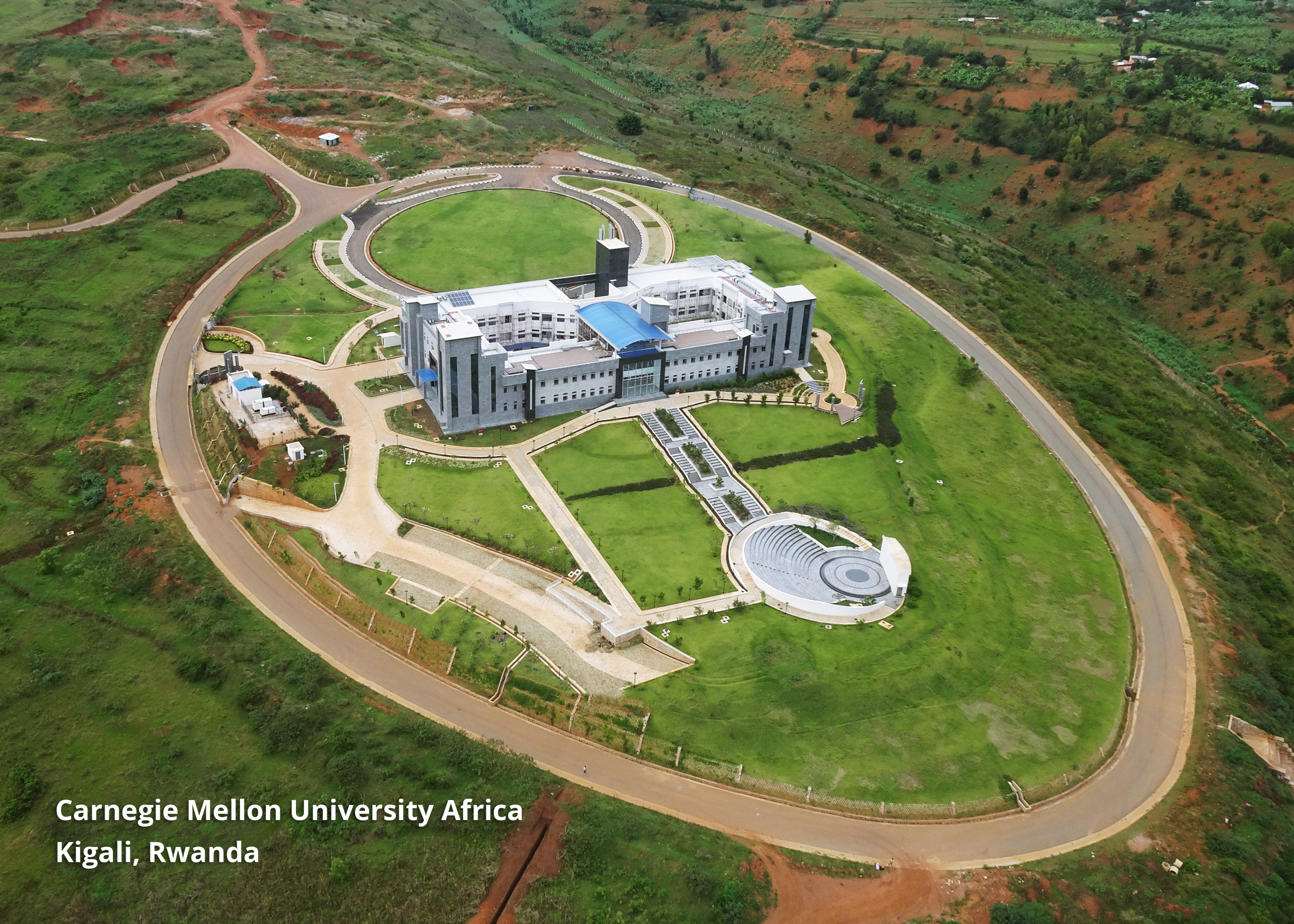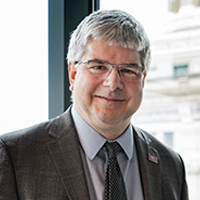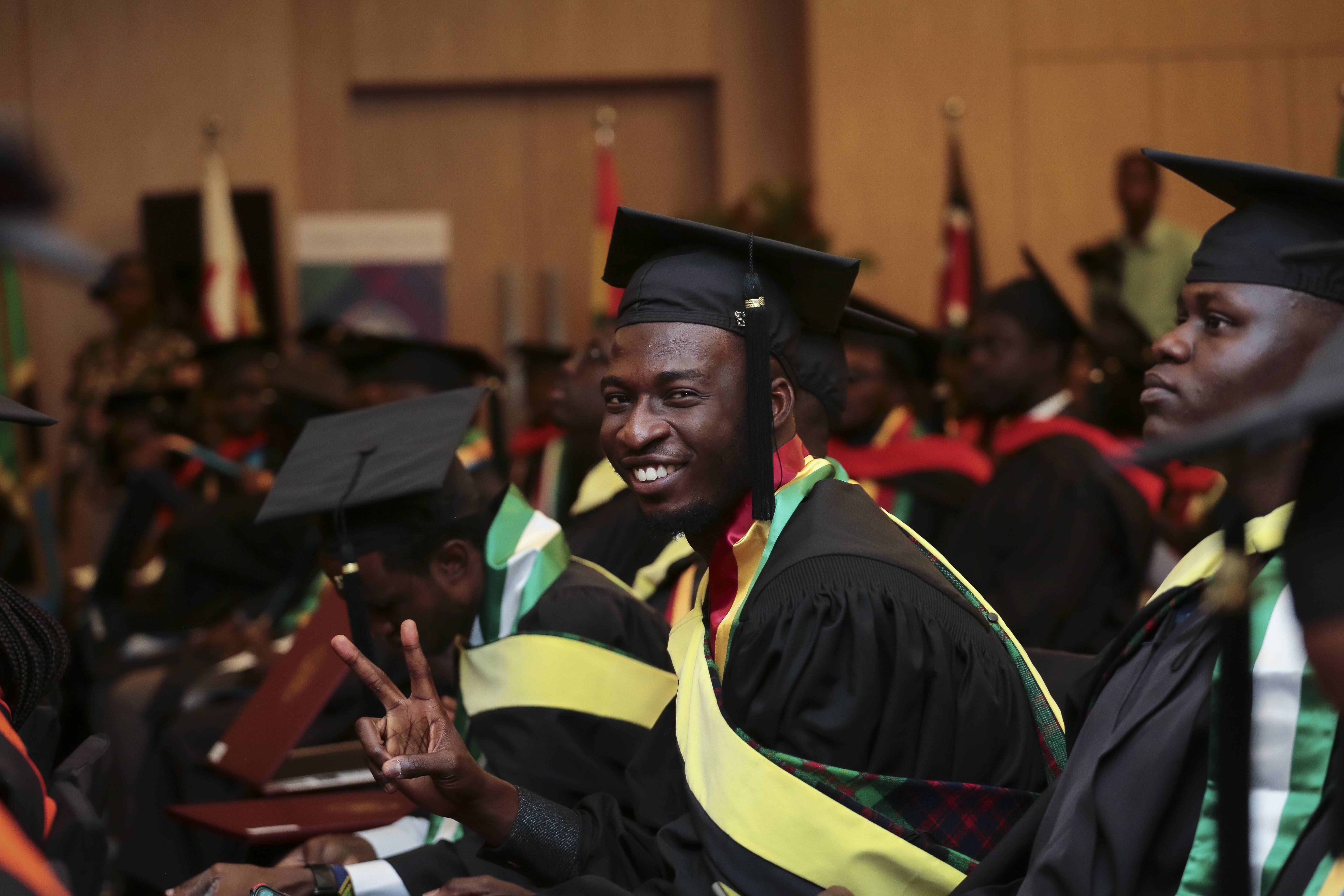CMU and Mastercard Foundation Partner to Drive Youth-Led Digital Transformation in Africa
Carnegie Mellon University and the Mastercard Foundation, in collaboration with the Government of Rwanda, are pursuing a transformational partnership in higher education and innovation in Africa to catalyze opportunities for 10,000 young people to engage with emerging technologies and lead the digital transformation of the continent.
The $275.7 million partnership with the Mastercard Foundation will significantly expand advanced engineering and technology education at Carnegie Mellon University in Africa. The investment from the foundation includes a $175 million endowment to perpetually fund Carnegie Mellon Africa and $100.7 million to establish CMU-Africa’s Center for the Inclusive Digital Transformation of Africa.
Carnegie Mellon’s commitment to Africa reflects its global mission. With more than a dozen degree-granting locations, students who hail from nearly 100 countries, and research projects and partnerships with organizations around the world, the CMU community is dedicated to its work to solve the critical and most complex challenges affecting society.
For more than a decade, this global focus has included its College of Engineering location in Kigali, Rwanda, where it educates the next generation of African tech leaders and innovators. CMU-Africa was established in 2011 through a partnership between Carnegie Mellon University and the Government of Rwanda.

As of fall 2022, the program enrolled students representing 21 African countries. CMU-Africa’s impact includes a nearly 90% employment rate within the first year of graduation. Its alumni have founded or joined startup companies, are pursuing their doctoral degrees in top programs in the United States and Europe, and are serving in government information offices, including within the Government of Rwanda and the World Bank.
“The key to creating opportunities for promising African students from all socioeconomic backgrounds is access to education in the high-tech fields that are driving the economies of the future,” said Farnam Jahanian, president of Carnegie Mellon University. “We are grateful to the Mastercard Foundation for their partnership with CMU over the past six years to help empower the next generation of Africa’s leaders, and we are delighted to be expanding our partnership even further. With this new collaboration, we will accelerate our shared mission and provide life-changing educational and career experiences for students across the continent.”
CMU-Africa has a strong connection to Carnegie Mellon University’s campus in Pittsburgh through faculty collaborations, teaching and student exchanges. This connection will be deepened as a result of a new partnership with the Mastercard Foundation. Now, additional engineering research, policy research projects and teaching innovations will strengthen both operations to drive inclusive digital transformation.
CMU-Africa offers graduate degrees in information technology, electrical and computer engineering and engineering artificial intelligence through Carnegie Mellon’s top-ranked College of Engineering, with the same standards, curricula and requirements as its Pittsburgh campus. Carnegie Mellon is the only U.S. research university with master’s degree programs and full-time faculty, staff and operations on the continent.
 “The Mastercard Foundation’s support will enable us to accelerate our Africa strategy, which is uniquely defined to prepare higher education students to meet the complex needs of the digital future along with the research and entrepreneurship necessary to compete in the global economy.”
“The Mastercard Foundation’s support will enable us to accelerate our Africa strategy, which is uniquely defined to prepare higher education students to meet the complex needs of the digital future along with the research and entrepreneurship necessary to compete in the global economy.”
WILLIAM SANDERS, DEAN OF THE COLLEGE OF ENGINEERING
According to the Mastercard Foundation, Africa has the youngest and fastest-growing population in the world. By 2030, there will be 375 million young people in the job market in Africa, and that number is expected to grow to more than a billion people within the next few decades.
“Mastercard Foundation Scholars and graduates from this program will be at the forefront of creating technologies and companies that will generate jobs and enhance Africa’s economic competitiveness,” said Reeta Roy, president and CEO of the Mastercard Foundation. “We are excited that this initiative will strengthen the role of African universities in developing the continent’s scientists, innovators and problem-solvers as well as generating knowledge that will benefit society more broadly.”
Through this historic partnership, CMU-Africa will:
- Expand instructional capacity, including introducing a new degree in engineering artificial intelligence and online learning programs.
- Grow the annual cohort of students enrolling in CMU-Africa by more than 33%.
- Provide additional financial assistance to more CMU-Africa students, including increased support for the Mastercard Foundation Scholars Program at CMU-Africa. The partnership will provide direct scholarship support to 300 students.
- Ensure programs recruit and provide opportunities for marginalized groups.
- Pilot programs for English language immersion to prepare undergraduate students from other African universities for graduate study.
The new partnership will also strengthen Africa’s research, entrepreneurship and innovation ecosystem more broadly by:
- Establishing a network of higher education institutions in Africa that will work with the private sector and governments to create the conditions for inclusive digital transformation.
- Supporting as many as 10 African universities to deliver high-quality engineering and technology education.
- Increasing digital knowledge creation to drive technology development and job-creating innovation through training, seed funding and collaboration opportunities for researchers at CMU-Africa and other partner universities.
- Directly involving faculty and staff from CMU’s Pittsburgh campus in CMU-Africa activities to innovate in education and help create the knowledge needed to drive the inclusive digital transformation of Africa in fields that include agriculture, health and finance, among others.
“The Mastercard Foundation’s support will enable us to accelerate our Africa strategy, which is uniquely defined to prepare higher education students to meet the complex needs of the digital future along with the research and entrepreneurship necessary to compete in the global economy,” said William Sanders, dean of the College of Engineering.
The new initiative builds on a previous partnership between the Mastercard Foundation and Carnegie Mellon University, as well as a successful decade-long partnership between the Government of Rwanda and CMU-Africa that has connected 561 young people from 21 African countries to world-class training — including 125 students supported through the Mastercard Foundation Scholars Program. Through the strategic collaboration and generous support of the Government of Rwanda and the Rwandan people, CMU-Africa has built a strong educational platform that serves the continent.
“The strategic partnership with Carnegie Mellon University is one of the Government of Rwanda’s key investments to support the development of a critical mass of skills in science and technology, particularly in information and communications technology, required by the knowledge economy and to help accelerate Rwanda’s and the region’s socioeconomic transformation,” said Valentine Uwamariya, minister of education in Rwanda. “We express our sincere appreciation to the Mastercard Foundation for their significant support, which will help Rwanda realize its vision for the future in establishing the Regional Center of Excellence in Rwanda at CMU-Africa and ensure the sustainability of the program. The Regional Center of Excellence, coupled with other important strategies will help ensure that we are part of, and benefit from, the global digital revolution.”
“The Mastercard Foundation has been a critical partner in the growth of CMU-Africa as we help meet the growing demand for high-quality technical talent who will accelerate development on the continent,” said Allen Robinson, director of CMU-Africa and associate dean for international programs in Africa. “This new, extraordinary phase of our relationship will exponentially magnify our ability to build a pan-African network that positively impacts the future of young people across the continent.”


